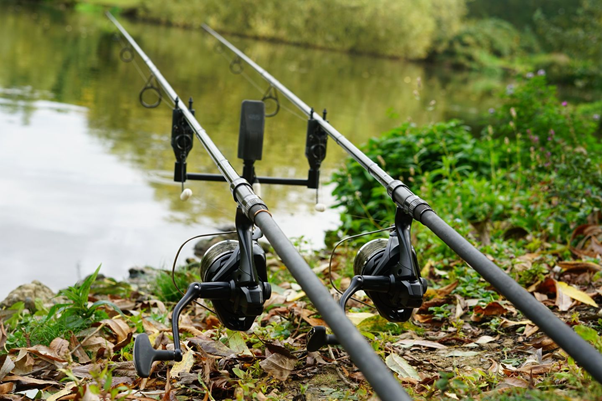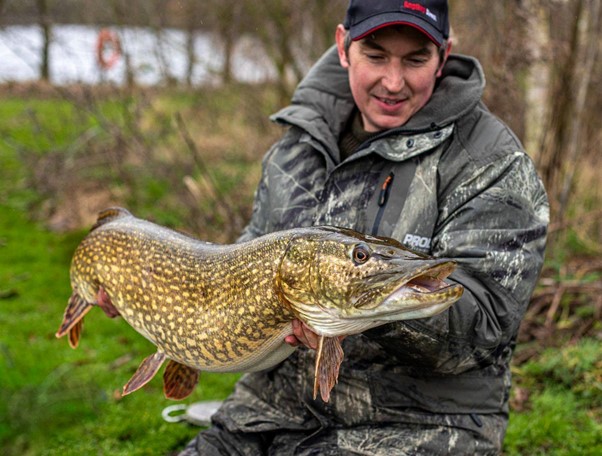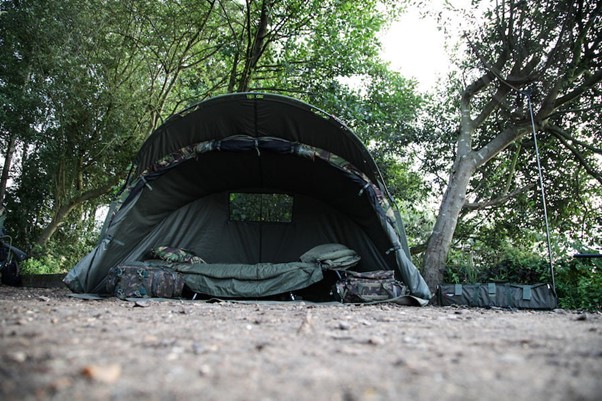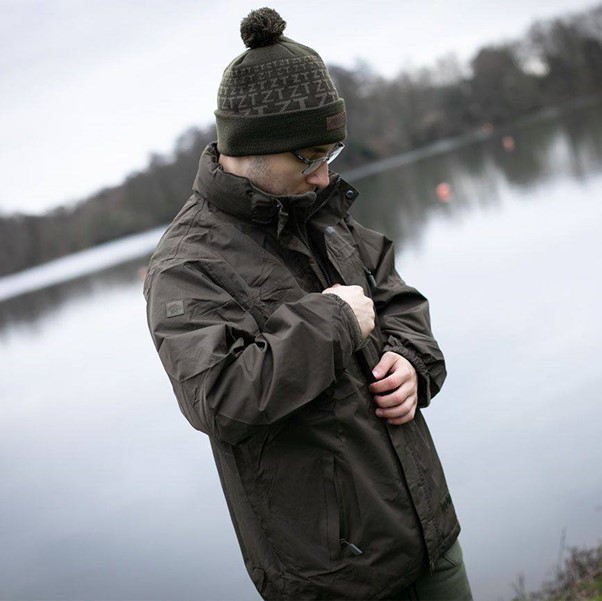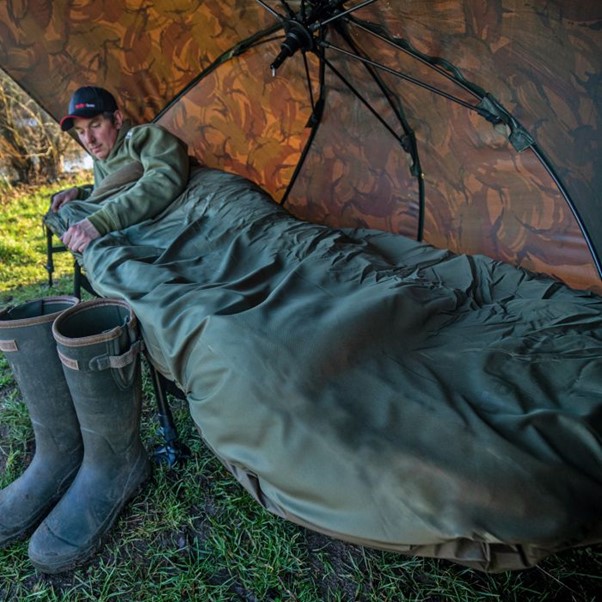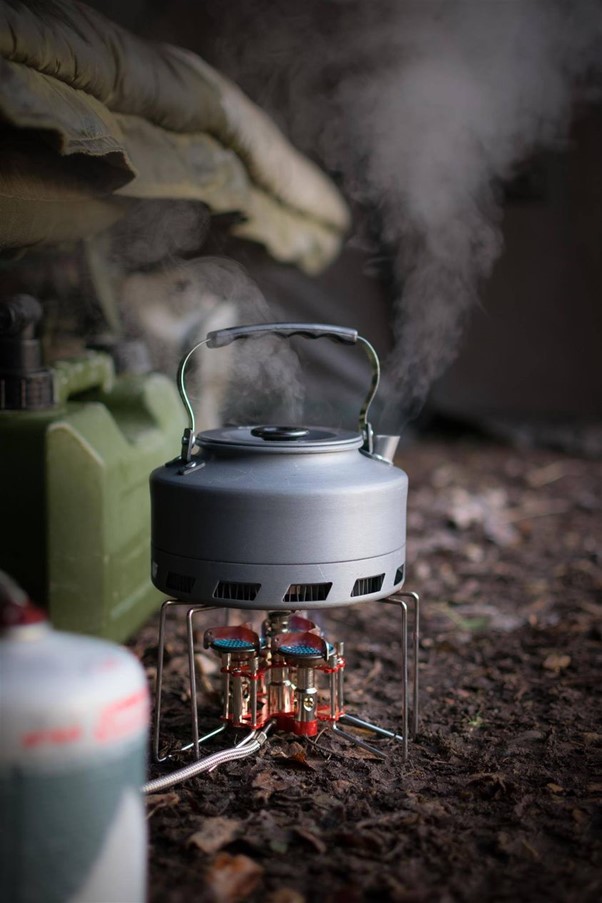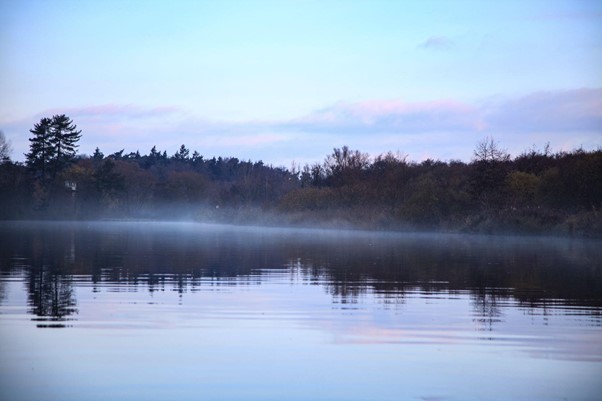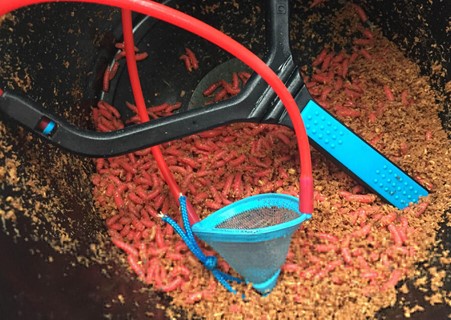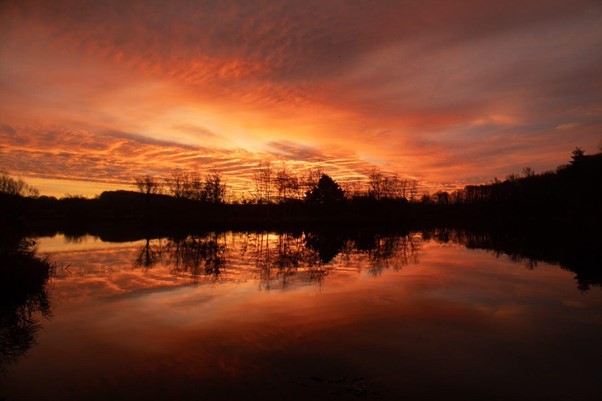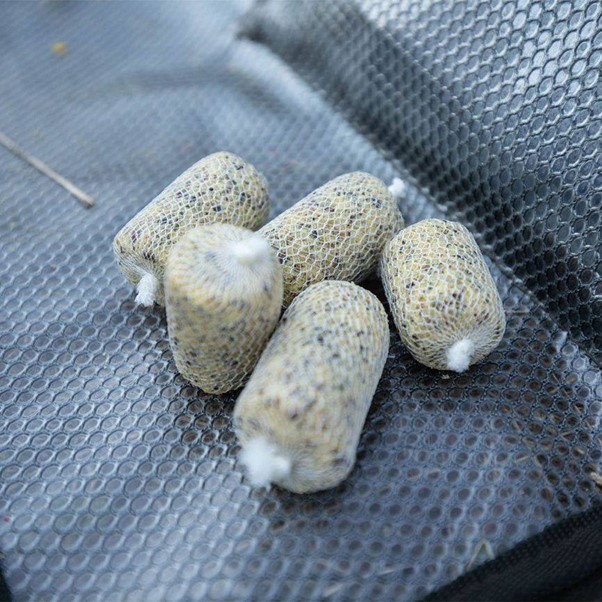Winter Fishing Tips : Your Guide to Fishing the Seasons
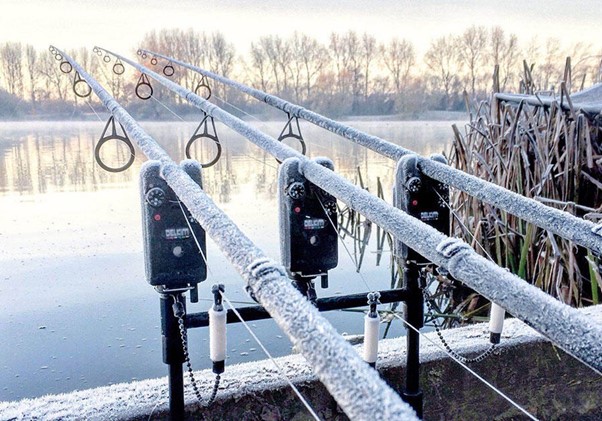
For many anglers, winter marks the end of your fishing and the start of hibernation mode with long nights watching TV waiting for the spring, however, with fewer anglers on the banks and still a whole multitude of piscatorial perfection to chase, if you tackle it right, winter is a great fishing season to be a part of.
Looking for Autumn Fishing Tips?View the Autumn Fishing Season Guide here. |
|
When is Winter?
Usually covering months from late November to end of February, the day that marks the start of the winter season in the UK, usually refers to the astronomical seasons (which are a result of the Earth's axis and orbit around the Sun). It started to frost up here in mid-December and is likely to continue through to mid-May.
Why do us Anglers love Winter?
Not only can banks be quieter, but fishing in the winter also offers the opportunity to catch fish at their heaviest weight and in their stunning dark winter colours. Nevertheless, colder water temperatures cause fish to feed less which combined with winter weather and long periods of darkness can be challenging but if you are setting off 2022 wanting to beat that PB, winter is the time to do it!
What Fish can you catch in Winter?
Although many will be after that larger Winter Carp, they feed a lot less in the colder temperatures leaving you sat behind motionless carp rods for sometimes hours on end, so we suggest being a little more open to targeting other species within the same day.
Fish such as roach, perch, grayling and chub are often happier to feed throughout the day regardless of the temperature. These can offer an action-packed day, even on a short session.
Winter is prime time for those impressive predators so make sure you kit yourself out and give pike, zander and perch a go! Predator fish produce bites and certainly keep you enjoying the winter as these cold-water killers are actively hunting prey fish in winter so attracting them with dead bait, live bait or even a decent lure can lead to a fantastic day full of bites.
Tops Tips for Winter Fishing in the UK
The following tips will help you make the most of your fishing during the coldest time of year and how to keep enjoying the sport despite the frost on the ground!
1. Short Sessions
At this time of year, those warm summer nights and extended daylight hours are a distant memory…you now may find yourself sitting behind motionless bobbins in the teeth of the cold northerly wind, waiting for the fish to come to you.
In winter, you do not have the luxury of hours in the daylight waiting for the fish to do all the work. Try to be more productive in a shorter space of time. A short session on a more regular basis is a much better approach to achieve that new PB.
Sometimes shorter sessions and adopting a roving or mobile approach can also help you to identify feeding areas quickly and being mobile and travelling light, for example, a few hours before or after work will more often than not help you identify bite times. For many anglers, first light and an hour into darkness are the most productive during this time of year.
For more short session tips, check out our a more details guide here.
2. Dress for Winter Fishing
Nothing can kill your enthusiasm and angling ability than being freezing cold and soaking wet. There’s no compromise in having quality clothing in winter. So remember to get yourself the following:
Insulating waterproof shoes: If your feet are cold you will not enjoy your day and are more likely to go home early.
Base Layers: Build up layers of clothing to trap warm air and keep you warm throughout the day. If you are moving or walking a long way and get warm then you can remove layers.
Winter Fishing Coat: A nice warm outer coat is a must and preferably one that is waterproof and hooded ensuring that those biting northerly winds are kept at bay.
Winter Warmers: Of course winter also calls for the thermal waterproof sock, fishing gloves, a woolly hat and in some cases a scarf.
TOP TIP: It is a good idea to have a spare set of clothing in your barrow bag or in the boot of your car when fishing in the winter.
For more winter clothing tips, check out our full Winter Clothing Buying Guide here.
3. Keeping Comfortable when Winter Angling
Keeping warm when fishing goes beyond the consideration of clothing choices. In the case of anyone spending the night on the bank, a good bivvy and sleeping bag are essential. You fish so much more effectively when you are comfortable.
In terms of longer sessions, the use of a groundsheet, as “uncarpy” as you think it may be, is essential to help reduce condensation and help add comfort to your time on the bank. Another helpful addition is a bivvy overwrap to help insulate you further on those cold nights.
Lastly, one that has been an absolute lifesaver on the coldest of nights has to be my trusty hot water bottle! Something this simple can make the difference between quitting and staying! It is all about being comfortable whilst we’re fishing. It’s not a test of endurance, so pack the things that keep you enjoying the fishing throughout the cold.
4. Warm Your Insides when Fishing
With winter clothing and fishing equipment extras sorted, make sure to pack yourself something better than a cold sandwich when Winter fishing. Things like warm drinks and hot food help keep you motivated to continue on your winter quest.
Hot Drinks: Whether you’re a tea or coffee drinker make sure your brewing rations are stocked up and in addition what better to warm your hands than to wrap them around a piping hot cup of your favourite bankside beverage. You can either take a pre-made flask with you or go all out with a kettle and stove set up.
Meal Suggestions: Pack yourself some trusty pots of instant porridge for those cold and frosty mornings, a few tins or even better some ready prepared homemade soup to warm your cockles throughout the day and then why not treat yourself to a hearty homemade stew in preparation for the onset of darkness and plummeting nighttime temperatures!
Cooking Equipment: Ensure you have a reliable stove and again a spare gas cylinder so that you can rustle up your favourite bankside grub to keep you warm from the inside.
TOP TIP: Using gas is in cold temperatures cold can affect the performance on the fuel so get yourself a thermal gas cover to ensure you don’t get left out in the cold.
5. How to Locate Fish in the Winter
We can’t always choose when we go fishing. As the winter takes hold and lakes often freeze or simply stop producing any bites, having the exact location spotted when arriving at your venue in colder conditions is a great time saver.
Holding Area: Usually located in mid-water, at the bottom of the lake venue, fish tend to group up and hold in an area of the lake. Their movements are much less pronounced due to the reduction in water temperatures.
Running water: Lakes will likely be frozen in the coldest conditions so visit your local river. Find where the water is running as this not only produces in your a huge variety of species that you might not have at your chosen lake venue but provides a higher chance of catching a fish.
Fish for liners: Cast into open water and fish a semi slackline. If you get liners in one area move your rods to this area until it results in a bite for you.
Shallows / Weedy bays: On a sunny winter’s day, look for birds diving over spots, as often this can indicate feeding of the invertebrates from a dying weed bed. Find the birds and the fish won’t be too far behind.
Rivers can be awesome waters to target in winter. The fact they hold a multitude of species means that you can fish for them all, increasing your chances of a bite and expanding your angling skill set. Species such as pike, perch, chub, barbel, dace, grayling and roach are all great targets and more than attainable in the winter.
The added bonus to rivers is that as the water is flowing even when stillwaters are frozen there’s a chance you will still find the rivers fishable. Chub, in particular, are my best friends in winter as they are willing to feed even in crazy sub-zero temperatures.
6. Consider the Weather when Winter Fishing
Although winter mostly consists of wind, rain and frost, it is still important to pay attention to the climate when deciding where to fish at a venue. If there’s a warm south-westerly wind the fish may get on the end of it, while if it’s a bright, crisp, sunny day the fish may head to very shallow water as this would be the first to warm up.
7. Scale Down on Fishing Tackle in the Winter
The water clarity is better in the winter along with most species feeding less, to ensure you keep bites coming try fine-tuning your tackle that you take with you, especially on a short session.
If you travel light and prepare to stay mobile you can keep up with the moving fish. Fish will move to warmer pockets throughout the day so be willing to move with them.
Do not just scale down the amount of fishing equipment you take but in the type of tackle too. Try to use thinner diameter lines, pay more attention to smaller baits, and generally fish with a more sensitive bite indication.
8. Choice of Bait for Winter Fishing
In the winter for all species love the natural baits such as maggots, worms and castors. The natural scent, amino acids (in the case of worms) and movement of these live baits help to trigger bites from the largest of carp to the smallest of roach.
Don’t neglect to use maggots in your feed as well as on the hook, they can get you a bite when even the best boilies or pellets can’t. Also, a solid PVA bag of maggots or a single maggot on a waggler or pole float can get you a bite on the bleakest of winter days.
TOP TIP: Use bread to target chub or simply trot maggots for all manner of different river species rather than having to give fishing a miss due to the lake having a lid on it.
When it comes to artificial bait choices, it is considered by many anglers that fishmeal based baits are too high in oil content and hard for the fish to digest in the cold so its worth swapping to bird food, nut-based bait or one that has a greater soluble content instead.
Having said that, in recent years with the evolution of carp baits, some fish meals baits now have a very low oil content making them just as efficient as their once considered more soluble counterparts.
Particles are perfect for winter pre-baiting as the mixture of various food elements will keep the carp rooting around for hours. If you’re successful in your approach and can be discreet you will be rewarded for your extra efforts, I can assure you of that. You can also try to fish with a mixed particle with high visibility properties such as corn or maize as carp loves these.
9. Baiting & Waiting
Whatever bait you end up taking with you on the bank, remember in winter the fish do not feed as much so do not be tempted to over bait your swim. Baiting little and often is the best approach for colder weather, as you can always put more in if the fish are clearing your spots but there’s no point in keep piling it in the margins time after time for it just to sit and rot on the bottom.
Where you have regular access to water and pre-baiting is allowed, baiting spots on a regular basis throughout the colder months can help you snare and draw in those extra bonus carp.
10. Terminal Tackle for Winter Fishing
If you do opt for Winter fishing on lakes, keep in mind the increased water clarity. Do not be surprised if you turn up and the margins are crystal clear and you can see the bottom in five feet of water or more. For this reason, make sure to adapt your terminal tackle.
Rig and bait presentation: Ensure that your rig needs to be pinned down to ensure it does not scare the bottom-feeding carp away. This can be done using a heavy tungsten tubing or leader, along with a fast sinking hook link. Try to match the bottom contours and colouration if possible.
Fishing Line: For added anti detection opt for a clear fast-sinking mono line or fluorocarbon to get everything from tip to tail nailed to the bottom and help you snare the wariest of cold water monsters.
Fishing singles: This can be a devastating tactic, flicking a bait out in front of as many fish as you can during the day will more often than not produce where other methods and a static approach are likely to fail.
PVA bags: Great for shorter sessions a PVA bag full of particles nestling tightly in next to a glugged hook bait, can be irresistible to carp in the winter. PVA’s bags help to create a carpet of bait that continually pumps out food signals throughout the watery layers.
TOP TIP: Make your PVA bags up the night before, store them in a dry and moisture-free place like in a bucket or freezer bag of rice so you are not wasting precious time at the bankside.
